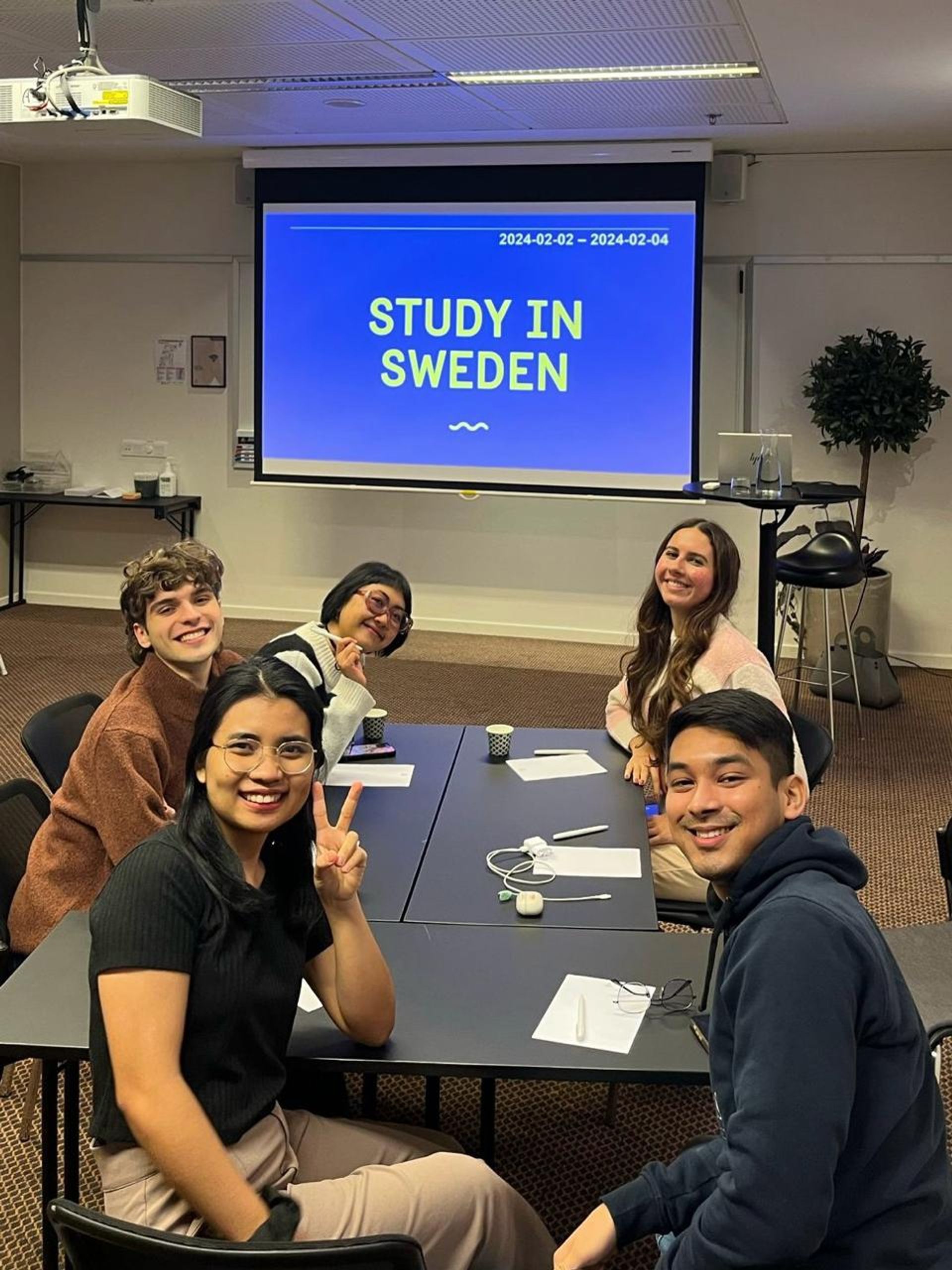
Written by Ayman
11 Mar 2015
Laptop: check. iPad: check. Pens, pencils, notebook (and even my passport): check, check, check and check. All set for my first day of my master’s study. I put on my backpack, looked at the mirror to check if I forgot to shave the left side of my face (again!), smiled assuredly at my reflection, and left the room. And a song echoed through my head; an old Chuck Berry song from a rather ancient Rock ‘n Roll record my father used to listen to all the time:
Up in the mornin’ and out to school
The teacher is teachin’ the golden rule
American history and practical math
You study’em hard and hopin’ to pass
Workin’ your fingers right down to the bone
And the guy behind you won’t leave you alone
On the bus, I almost felt an itch to check my schedule again for the millionth time since early that morning. “Maybe there was an emergency, and they had to change the schedule. You don’t want to be in the wrong classroom on your first day now, do you?” But there was no change, and my only class for that day was, still, “Ideation-Creating a Business Idea”
The word “Ideation” sounded a bit peculiar to me. “Is it even a proper English word”? I thought. “What’s the verb of ‘Ideation’? Huh? To ‘ideate’?” I continued my rather pedantic internal monologue, stifling a derisive laugh (It actually is! But I didn’t know it at the time).
The course description promised a deep dive into “generating, developing and evaluating business ideas”. Intriguing as it sounds, I didn’t really believe one can be taught how to “generate” business ideas. I, much like most people, had a rather romanticized idea of “Eureka” moments; you may be eating, talking, or watching television and all of a sudden BOOM you have an epiphany, and now you’re a millionaire. Studying “how to come up with ideas” in school was, I thought, rather anti-climactic and a bit odd. But it was a mandatory course, so I didn’t have much choice.
Five minutes into that first lecture was all I needed to realize that this course will be different. Our first class activity – one that we were asked to do before most of us even got their notebooks and their laptops out – was to pair up, stand facing each other, and answer a rather profound question. It’s been a while now (I took this course nearly six months ago), but I remember it was along the lines of “Is entrepreneurial success an acquired skill?”
My partner was superbly articulate. In the five minutes allotted to her, she presented strikingly convincing arguments, quoted prominent entrepreneurs, and used her personal experience as an example to further make her case. When it was my turn to retort, I was as eloquent as a potato “Entrepreneurship good.. yeah.. Entrepreneurship very important… hmmm” A caveman could have made a stronger argument, yet she was so polite. She shook her head in confirmation as if I have made the discovery of the century, and said “Entrepreneurship is very good indeed”.
In the six weeks that followed, this course proved time and again that academia and entrepreneurship are not at odds. Our teacher, Gregg, is an absolute master of his craft. He managed to strike a rare balance between theory and practice like I’ve never seen before. “Blending theoretical and practical aspects” is a phrase that you’ll find in almost every academic program’s brochure on the planet, but it’s one thing to read about it and a totally different thing to see it in action.
I’ve had many visionary teachers and interesting courses in my life, both in my undergraduate study in Sudan as well as in my master’s here in Sweden, but nothing was quite like this one. Ideation soon became the topic of most of our Fika breaks. My colleagues and I did not regard it as “yet another academic course”, but it was rather an eye-opener of a sort. Despite the unfortunate timing of the lectures (start at 5 p.m. and goes on for three hours), everybody was always there on time. We would congregate before the lectures and discuss today’s topic (Yep, that’s how committed we were. We’d do the reading even before the lecture) we would meet again after the lecture, rather amazed. Almost every lecture gave us something unique to think about.
On a more personal note, I suppose this course meant so much to me because it was my first encounter as a wannabe-entrepreneur with the reality of entrepreneurship. In our class projects, we were asked to develop full-fledged proposals for innovative start-ups. I’ve had ideas for a start-up for quite some time, but they’ve never been put to the test of objective, unbiased assessment. Putting those ideas on paper, and reading the teacher’s encouraging comments was perhaps the first indicator that my dream of becoming an entrepreneur isn’t so daft after all. If I ever become a successful entrepreneur, this course will be – without a doubt – one of my career’s most defining moments.
“Ideation-Creating a Business Idea” is offered by the Stockholm School of Entrepreneurship, a world-renowned academic facility in entrepreneurship and innovation studies. The school has five member institutions (KTH, Stockholm University, Karolinska Institute, Stockholm School of Economics and Konstfack), and offers a wide variety of courses, workshops, events and training programs. Alumni of SSES went on to found or co-found hundreds of companies (SoundCloud is one example). To read more about SSES’s history, activities, programs and competitions visit http://www.sses.se/
You can read more about the Ideation course here:
http://www.sses.se/education/courses/ideation-creating-a-business-idea
Here’s a short bio of the course’s director and the books he authored/co-authored:
http://triplecrownleadership.com/authors/greggs-bio/




